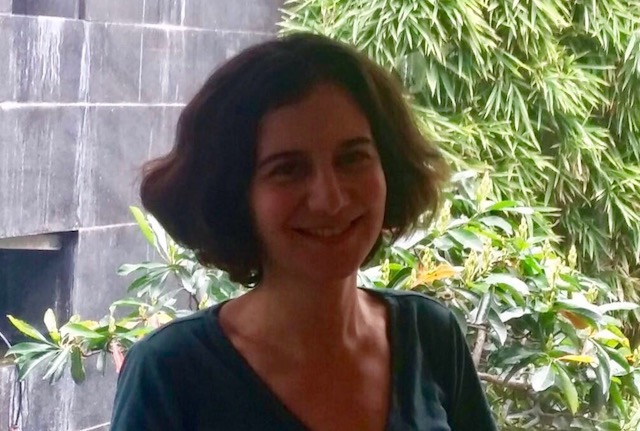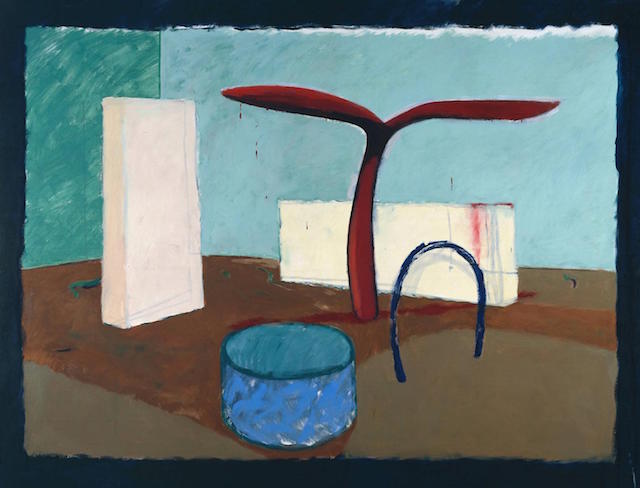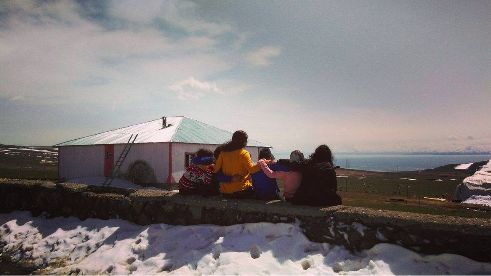Historian Noémi Lévy-Aksu, following the cancellation of her work permit at Boğaziçi University, delivered this speech to a crowd of colleagues and students on March 10, 2017. Explaining the political context of this cancellation, she urged everyone to raise their voices against such arbitrary decisions that have become commonplace in Turkey since last summer. She corrected and edited my hasty translation.
First of all, let me briefly introduce myself. I am French, I have been living in Turkey since 2003, and I have been working at Boğaziçi University since 2010 as a full-time faculty member. As you know, I signed the Petition of the Academics for Peace in January 2016. I learnt this Wednesday [8 March 2017] that the Council of Higher Education (Yüksek Eğitim Kurulu, YÖK) in Ankara had cancelled my work permit on February 22th, 2017, without giving any reason. This decision also targeted Prof. Abbas Vali, the other foreign signatory of the petition in our university, who had just resigned from our sociology department. Coincidentally, two days before [6 March 2017], I had passed an oral exam in Ankara, which granted me the right to become an Associate Professor; hopefully this will be useful in a close future.
Freedom of speech is the kind of values that everyone acknowledges and claims for himself/herself. But, as we all know, today this freedom is severely restricted in Turkey, not only in the universities, but also in many institutions as well as the media. I will briefly talk about what is going on in the universities. Hundreds of academics from both public and private universities, who signed the petition of the Academics for Peace, have been dismissed, together with other critical voices. Via emergency decrees and other administrative measures, they have lost their jobs, but also their social insurance and often their passports, making it impossible for them to travel abroad. At the same time, they have to face various forms of social pressure and prosecution.
In short, my experience is far from being unique and I am in a much easier situation than many others. In this sense, if there is a protest in Boğaziçi University these days, this will be not only for me but also for all the academics who have been unjustly dismissed, in Mardin, Kocaeli, Ankara and many other places. Being from Boğaziçi University or being a foreigner should not a make a difference, I don’t want special treatment. Actually, what I resented the most in the YÖK’s decision is to be singled out as a foreigner. I leave this distinction to the Council of Higher Education. I do not feel myself like a ‘foreigner’ here. I hope you will agree.
To come back to Turkey and freedom of speech, the aim of the purges in the universities is clearly to punish critical voices, to silence them. University is not just any institution. It plays a major role in shaping the present and the future of democracy. Therefore, what is going on in Turkey is not only sad and harmful for those who are banned and for the students. It also does great damage to the scientific and cultural production and, beyond this, to the future of Turkey.
Yet, let’s not feel hopeless! Since I learnt the decision, I have felt much sadness and fear in the expressions of support which I received. I thank you all for your support and solidarity but my state of my mind is quite different, I don’t feel hopeless. The universities are central for freedom of speech and for critical thought. But there are other places too. Many academics continue to write and act in resistance, in the streets, in alternative academies, and from abroad. Beyond this, I do believe that the tragic situation in the universities will not last forever and that we will be able to come back.
What is going on in Turkey is not only an attack against freedom of speech: it is the destruction of the rule of law. Therefore, we should not only react to defend freedom of speech, but also rise against this broader process. My current research interest is on the equivalent of the state of emergency in the Ottoman Empire and I focus on questions such as the suspension of law, the restriction of freedoms for the sake of state security and the erosion of constitutional rights. I study these issues within the Ottoman context, but they are fully relevant to today’s situation. You don’t need to be a member of a political organization or an activist to rise against the severe human rights violations which are taking place in Turkey, especially in the Kurdish regions. Nor you need to be a Turkish citizen. I am none of these. When I signed the Petition of Peace, I listened to my conscience, and I will continue to do so, together with many others. You may call it a political standpoint, but what “political” means here is neither party membership nor opposition to another party. Peace, freedom and justice should be the common set of values that bind us together, despite our political differences
I have been teaching the history of Modern Turkey for a few years. This is a class which I really enjoy, where we talk about many controversial issues, like the Armenian and Kurdish questions. The aim of my teaching is not to impose my thoughts on anyone but to open a space for discussion on these issues. We are lucky enough to have this freedom at Boğaziçi University. We should be aware of it and use it as much as possible. We need to go beyond political polarization, without trying to oppress or silence the others. I truly believe we can gather around common ethical values, as academics, students, and staff. At least, we should try to.
I would like to end with an historical example. Normally, as part of this course [Hist 106: The Making of the Modern World], I give lectures on the rise of fascism and World War II. I’ll take an example from this period and conclude with some comments on resistance in the academic sphere. As a preliminary, I want to make it clear that the aim of this historical digression is not to imply that today’s Turkey is the equivalent of the fascist regimes in these times. My aim is rather to reflect with you upon ways to resist against oppressive regimes in the universities and beyond.
Today, there are many historians and history students among us, both from our department and from elsewhere. In your historiography classes, I am sure you heard of the Annales school, a major historiographical movement which was initiated by Lucien Febvre and Marc Bloch and brought a new perspective to the historical field. Don’t worry, I will not lecture on historiography today; I just want to remind you of a much discussed episode in the history of Annales.
After the German occupation of France during World War II, Lucien Febvre and Marc Bloch were faced with a difficult dilemma: since Bloch was Jewish, he could not anymore be the co-proprietor of the Annales and his name had to be dropped from the journal. The correspondence between Bloch and Febvre in this period is gloomy and thought-provoking. When Febvre wrote to Bloch and asked him whether the journal should continue in these conditions, Bloch strenuously resisted this idea and the publication under German censorship. Yet, Febvre objected to his answer, arguing that the Annales had the duty to continue and bring an intellectual contribution to the resistance against the Nazis. He finally convinced Bloch and managed to publish the journal throughout the war, with valuable intellectual contributions and a dose of critical spirit. Meanwhile, Bloch, who had been dismissed from his academic position, joined the Resistance movement and he was executed by the Gestapo in June 1944.
Much has been written about this episode. Was Febvre a kind of collaborationist? Or should we consider his intellectual work during the war in the framework of a broader understanding of resistance? Especially if we consider the level of oppression and violence in that period, we should not rush to blame Febvre’s choice. Beyond the case of the Annales, this episode epitomizes the challenges of resistance against authoritarian power, in the academic sphere and beyond.
How shall we resist as academics? Whenever it is possible, we shall keep in mind Febvre and Bloch’s arguments and try to achieve both: continuing our studies, classes, scientific and intellectual work on the one hand; criticizing, protesting, resisting to the unacceptable on the other hand. These are not mutually exclusive and the university is precisely the space which can bring them together. Not always unfortunately.
I love Boğaziçi University, my job, and above all I love my students. Therefore, I will fight by all means to regain my position and to continue to live in Turkey. Yet, if I am compelled to choose between my academic position and my freedom of speech or my right to rise against injustice, without any hesitation I’ll choose the second option. In a way, the decision of the Council of Higher Education has made this choice for me. They can dismiss me and my colleagues but they cannot silence us. We will continue our intellectual production, we will continue to criticize and resist. Don’t remain silent!
Ana görsel: Noémi Lévy-Aksu.
Click here for the original Turkish.





